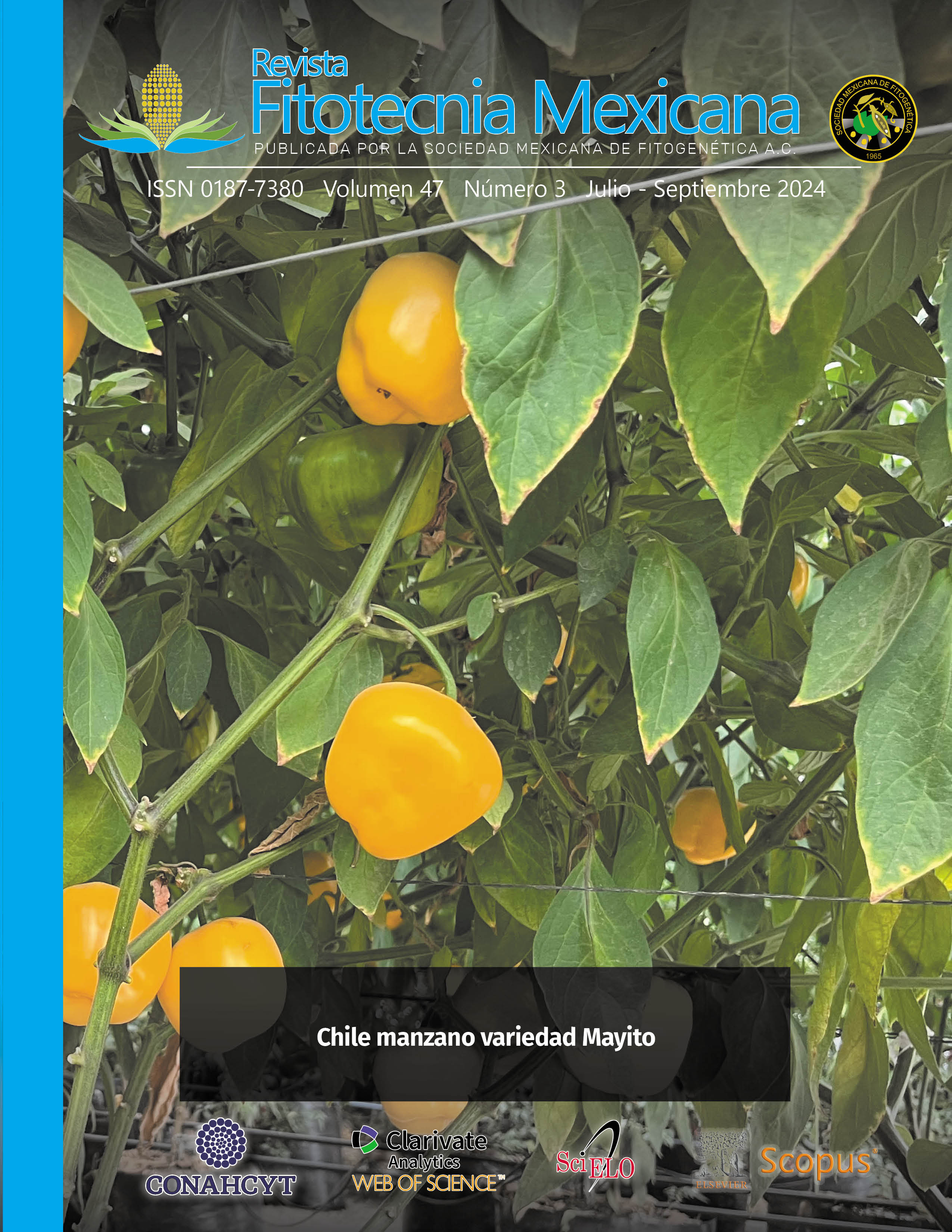PLANT HEIGHT AND YIELD OF POTATO VARIETY FIANNA IN RESPONSE TO THE APPLICATION OF MEPIQUAT CHLORIDE IN GREENHOUSE
Main Article Content
Abstract
High densities of planting potatoes (Solanum tuberosum) in greenhouse cause etiolation in plants, which in turn cause rot and crop lodging, affecting yield and making cultivation difficult. The purpose of this research was to evaluate the effect of mepiquat chloride (MeC) on growth inhibition of potato plants in greenhouse. The variety of potato Fianna was used and four experiments were established; in the first two experiments, doses of 1000, 1500 and 2000 mg L-1 of mepiquat chloride were evaluated from 35 days after emergence (DAE), while in the last two experiments the application times were determined as follows: in the third experiment 1000, 1500 and 2000 mg L-1 were applied from 15, 20, 25 and 30 DAE, and in the last one 1500 and 2000 mg L-1 were applied from 15, 20 and 30 DAE, performing four to six applications every eight days. In the first two experiments, a lower height from 5.5 to 13 % of the treated plants was observed in relation to the control, while in experiments three and four the difference in height was greater, of up to 60.4 %, showing the greatest effect when applied at 15 and 20 DAE with a decrease in plant height of 45 and 60.4 % respectively, while in the fourth experiment the same trend was observed with up to 49.0 % of height decrease; the effect was greater when MeC applications started from 15 and 20 DAE. In earlier applications there was a negative effect on yield and fresh weight; however, the obove was not observed in the number of total and large (> 20 mm) minitubers produced. Therefore, it is possible to use this inhibitor to stop excessive growth of potato plants in a greenhouse and facilitate agronomic management of the crop in the production of pre-foundation II potato seed.

